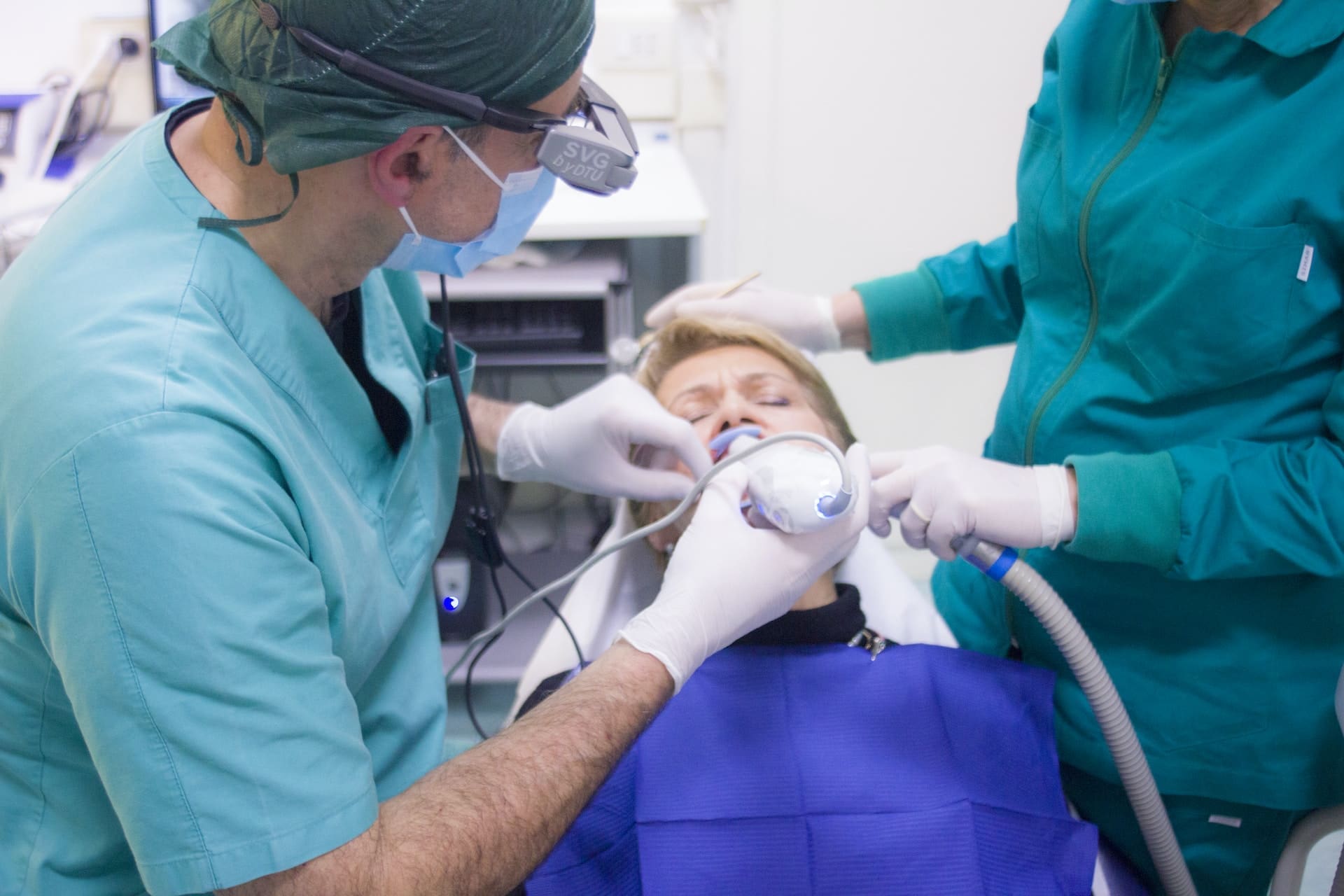Oral surgery is a specialized field of dentistry that often includes more complex procedures aimed at addressing a variety of oral health issues and improving overall dental function. At Care Dental Implants & Invisalign Center in Quincy, MA, Dr. Beniwal and his team are well-versed in a wide range of oral surgery techniques, providing patients with access to comprehensive, advanced dental care in a supportive and compassionate environment.
In this informative guide, we’ll discuss some of the most common oral surgery procedures performed at Care Dental Implants & Invisalign Center, including dental implant placement, tooth extractions, wisdom tooth removal, and corrective jaw surgery.
We’ll delve into the indications for each procedure, helping you understand when oral surgery might be necessary or beneficial for your dental health. Additionally, this article will provide insight into what to expect during oral surgery treatment and recovery, preparing you for a successful and stress-free experience.
By familiarizing yourself with the various types of oral surgery procedures, their indications, and what to anticipate during your treatment journey, you’ll be better prepared to make informed decisions about your dental care. Trust the expert team at Care Dental Implants & Invisalign Center to guide you through each stage of your oral surgery journey, ensuring the best possible outcomes for your oral health and well-being.
Dental Implant Placement: Restoring Missing Teeth
Dental implants are a permanent, natural-looking solution for replacing missing teeth. The implant procedure involves placing a titanium screw-like post into the jawbone, which acts as an artificial tooth root. The implant then fuses with the bone over several months in a process called osseointegration. Once fully integrated, a dental crown is attached to the implant to complete the restoration and provide a functional, aesthetic replacement for the missing tooth.
Indications for dental implant placement include:
- Single or multiple missing teeth
- Insufficient bone density for traditional dentures
- Preservation of jawbone integrity and facial structure
Tooth Extractions: Removing Damaged Teeth
Tooth extractions may be necessary when a tooth is severely damaged or decayed beyond repair. The extraction procedure involves the careful removal of the affected tooth from its socket within the jawbone. Depending on the complexity of the extraction, either a simple pull or a more involved surgical procedure may be required.
Indications for tooth extractions include:
- Severe tooth decay or damage
- Advanced gum disease
- Impacted teeth
- Preparation for orthodontic treatment
Wisdom Tooth Removal: Preventing Complications
Wisdom teeth, also known as third molars, are the last set of teeth to erupt, typically appearing between the ages of 17 and 25. For many people, wisdom teeth can grow in misaligned or become impacted, leading to dental issues such as pain, swelling, and infection. Wisdom tooth removal is an oral surgery procedure designed to alleviate these problems, extracting the problematic wisdom teeth under local or general anesthesia.
Indications for wisdom tooth removal include:
- Impacted or partially erupted wisdom teeth
- Wisdom teeth causing crowding or misalignment
- Wisdom teeth at risk for infection or decay
Corrective Jaw Surgery: Addressing Structural Issues
Corrective jaw surgery, also called orthognathic surgery, is a specialized surgical procedure used to correct various skeletal and dental irregularities within the jaw and facial structure. This advanced oral surgery procedure is performed by a trained oral and maxillofacial surgeon in conjunction with an orthodontist.
The surgery involves making precise cuts to the jawbone, and then repositioning it into the desired alignment. The goal of the surgery is to achieve optimal alignment and functionality of the jaw, which can result in significant improvements in facial appearance, speech, and overall oral health.
Corrective jaw surgery may be needed for a variety of reasons, such as correcting a misaligned bite, improving the appearance of the face, or addressing breathing problems caused by structural abnormalities in the jaw. The procedure may also be used to correct congenital abnormalities or injuries that have caused damage to the jaw.
Indications for corrective jaw surgery include:
- Severe overbite, underbite, or crossbite
- Facial asymmetry
- Difficulty chewing or speaking due to jaw malformation
- Sleep apnea or other breathing difficulties related to jaw structure
Conclusion
Oral surgery procedures encompass a diverse range of treatments aimed at addressing complex dental issues and improving overall oral health. By understanding the most common procedures, their indications, and what to expect during treatment, you can confidently navigate your oral surgery journey. Trust the experienced team at Care Dental Implants & Invisalign Center in Quincy, MA to guide you through each stage of your oral surgery journey, ensuring the best possible outcomes for your oral health and well-being.
To learn more about the variety of oral surgery procedures offered at Care Dental Implants & Invisalign Center or to schedule a consultation, contact our dedicated dental professionals today. We’re committed to helping you achieve a healthier, happier smile through advanced dental care tailored to your unique needs.
Are you looking for a trusted dentist in Quincy, MA? Look no further than Care Dental Implants & Invisalign Center! Led by the skilled and experienced Dr. Beniwal, our practice is dedicated to creating healthy and confident smiles through a comprehensive range of dental services. From dental implants to Invisalign, our team is here to address all of your oral health needs. Contact us today to schedule an appointment and take the first step towards a healthier smile with the best dentist in Quincy, MA.


